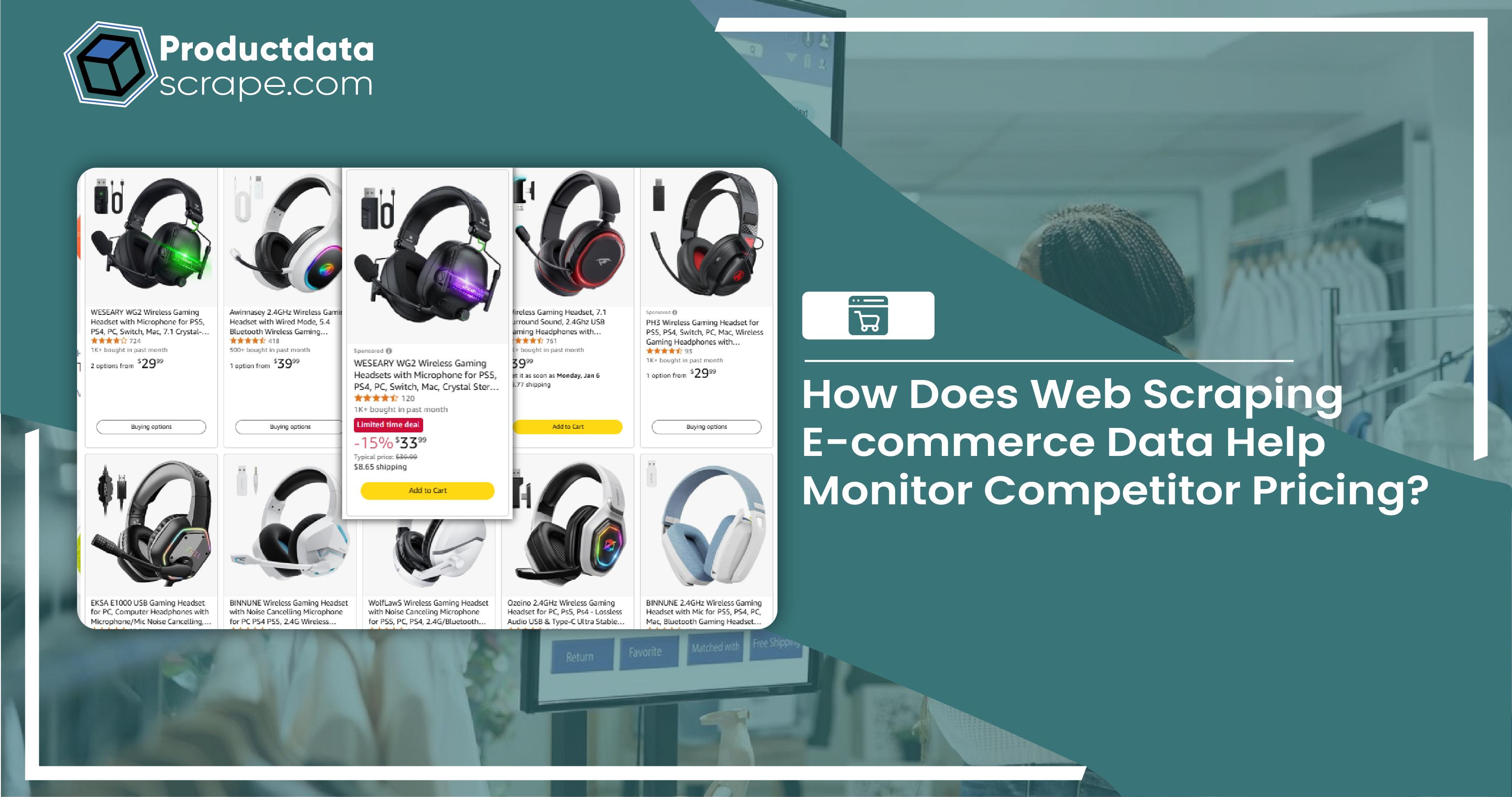
Introduction
In today's highly competitive e-commerce environment, businesses must adopt effective strategies to stay ahead of competitors. One such strategy is tracking competitor data, especially related to pricing. E-commerce pricing is pivotal in attracting customers, influencing purchasing decisions, and maintaining profitability. With the proliferation of online retail, businesses face the challenge of staying competitive regarding product offerings, prices, and market positioning. To address this challenge, Web Scraping E-commerce Data for Pricing Analysis has emerged as an invaluable tool for e-commerce companies, allowing them to monitor competitors' pricing strategies, adjust their own, and enhance their market position. With Ecommerce Data Scraping, businesses can access real-time insights and make data-driven decisions that support their competitive edge. Many e-commerce businesses now rely on E-commerce Data Scraping Services to streamline the process and improve their pricing strategies by leveraging data from multiple competitors.
The Importance of Pricing in E-Commerce
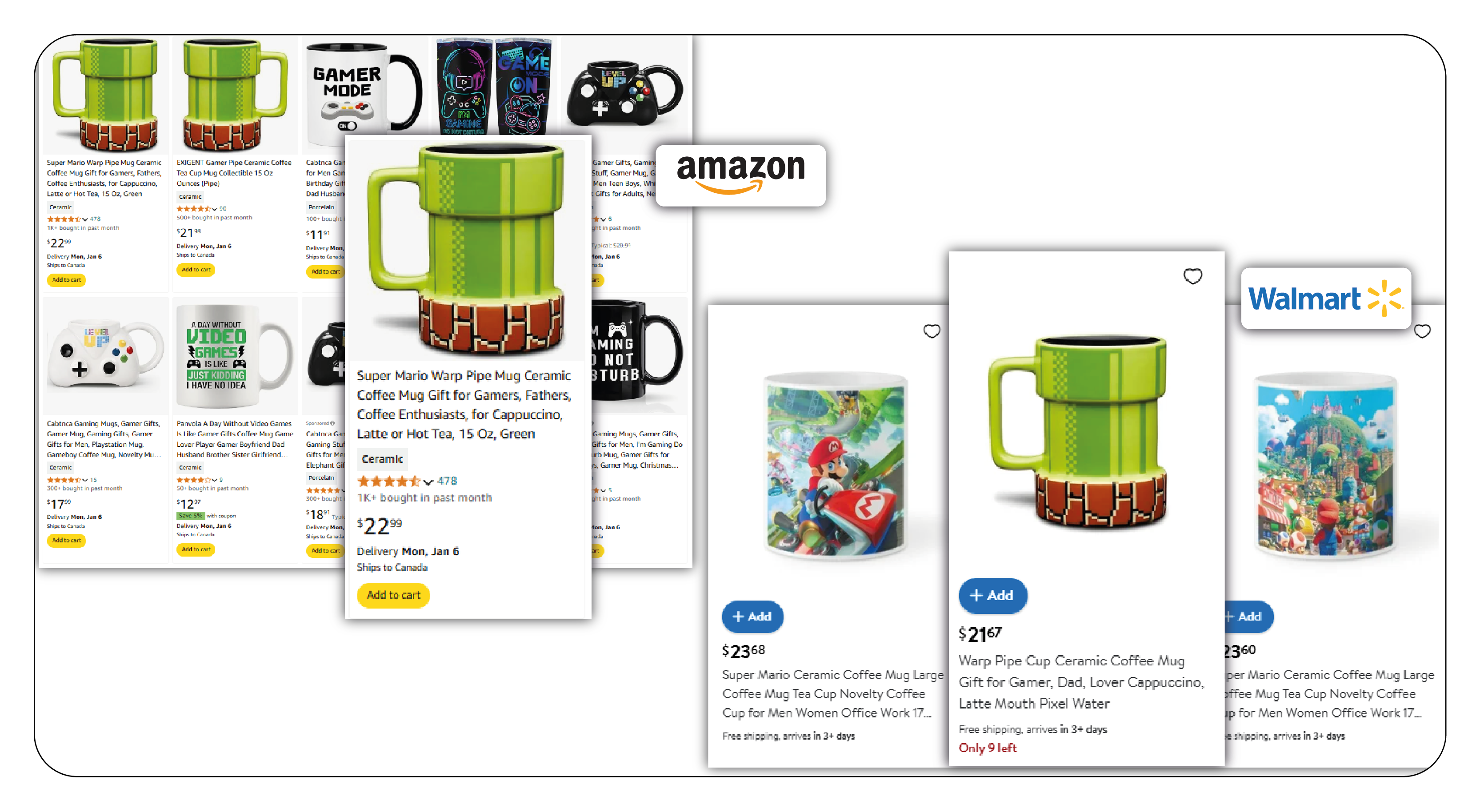
Pricing is a fundamental element of any e-commerce strategy. It determines not only a business's profitability but also its ability to attract and retain customers. In the digital age, consumers can access a wealth of information about product prices from various online sources. As a result, online retailers must proactively manage their pricing strategies to stay competitive and align with customer expectations.
Effective pricing requires continuous monitoring of competitors to ensure that prices remain competitive within the market. For example, if a company sells similar products to a competitor at a higher price point, customers may opt for the competitor's offerings, leading to reduced sales. Conversely, setting prices too low could undermine profitability and devalue the brand. Therefore, understanding how competitors price similar products and responding dynamically to changes in the market is essential for success in the e-commerce space. Price Monitoring plays a crucial role in maintaining this competitive advantage. By utilizing Pricing Analysis, businesses can track price fluctuations and adjust accordingly. Tools to Scrape E-commerce Data enable companies to continuously gather competitor pricing information and maintain a well-informed pricing strategy.
What is Web Scraping for Pricing Analysis?
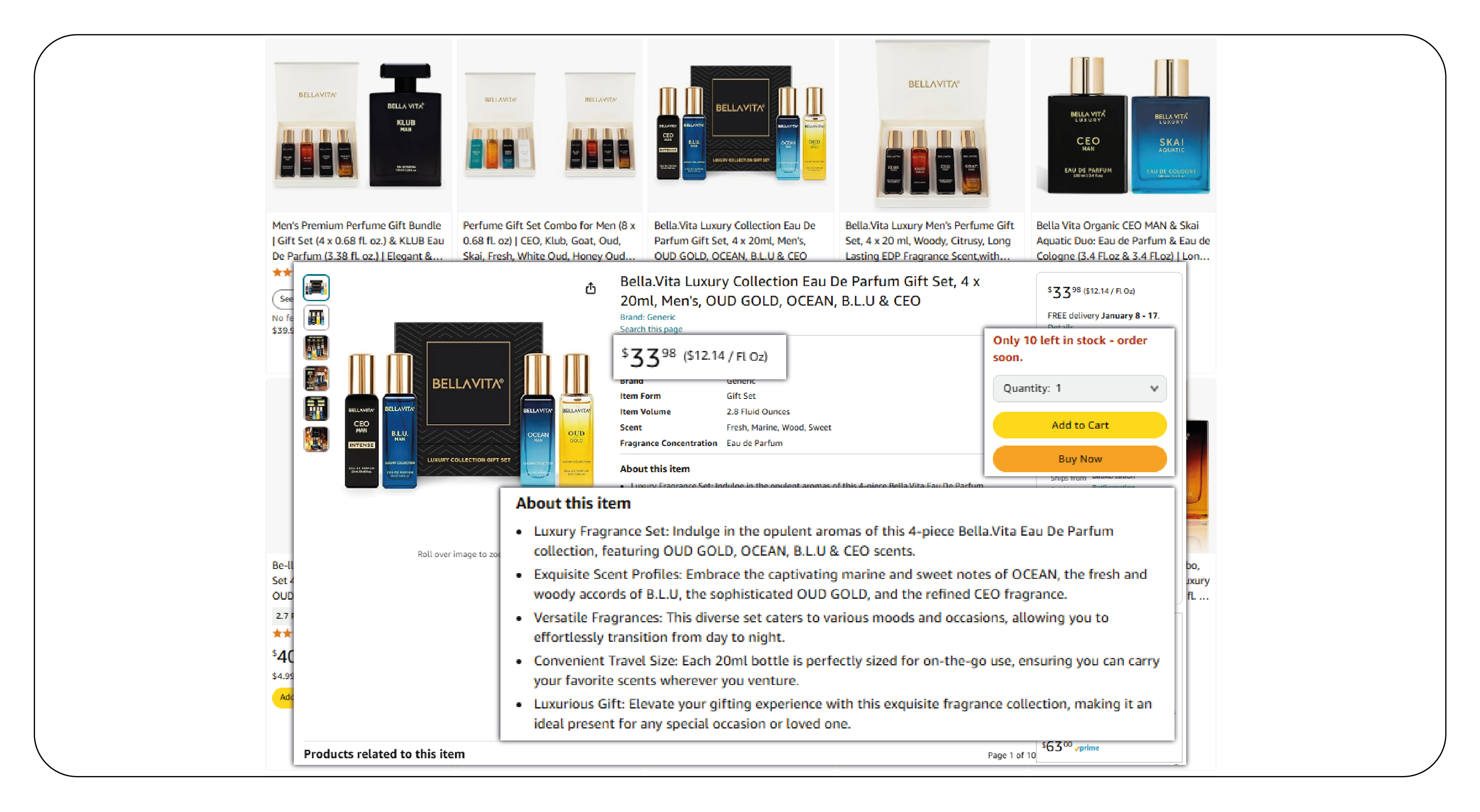
Web scraping, also known as web harvesting or web data extraction, is the process of automatically extracting data from websites. For e-commerce businesses, web scraping involves collecting product information such as prices, descriptions, reviews, and availability from competitors' online stores. This process is facilitated by specialized software or tools that interact with websites to gather structured data, which can then be analyzed for insights.
When applied to pricing analysis, web scraping allows companies to track competitors' product prices across various platforms, such as online stores, comparison websites, or marketplaces. By continuously collecting real-time data, businesses gain a comprehensive understanding of pricing trends, enabling them to adjust their prices dynamically, identify pricing gaps, and enhance their competitiveness.
Benefits of Web Scraping for Pricing Analysis
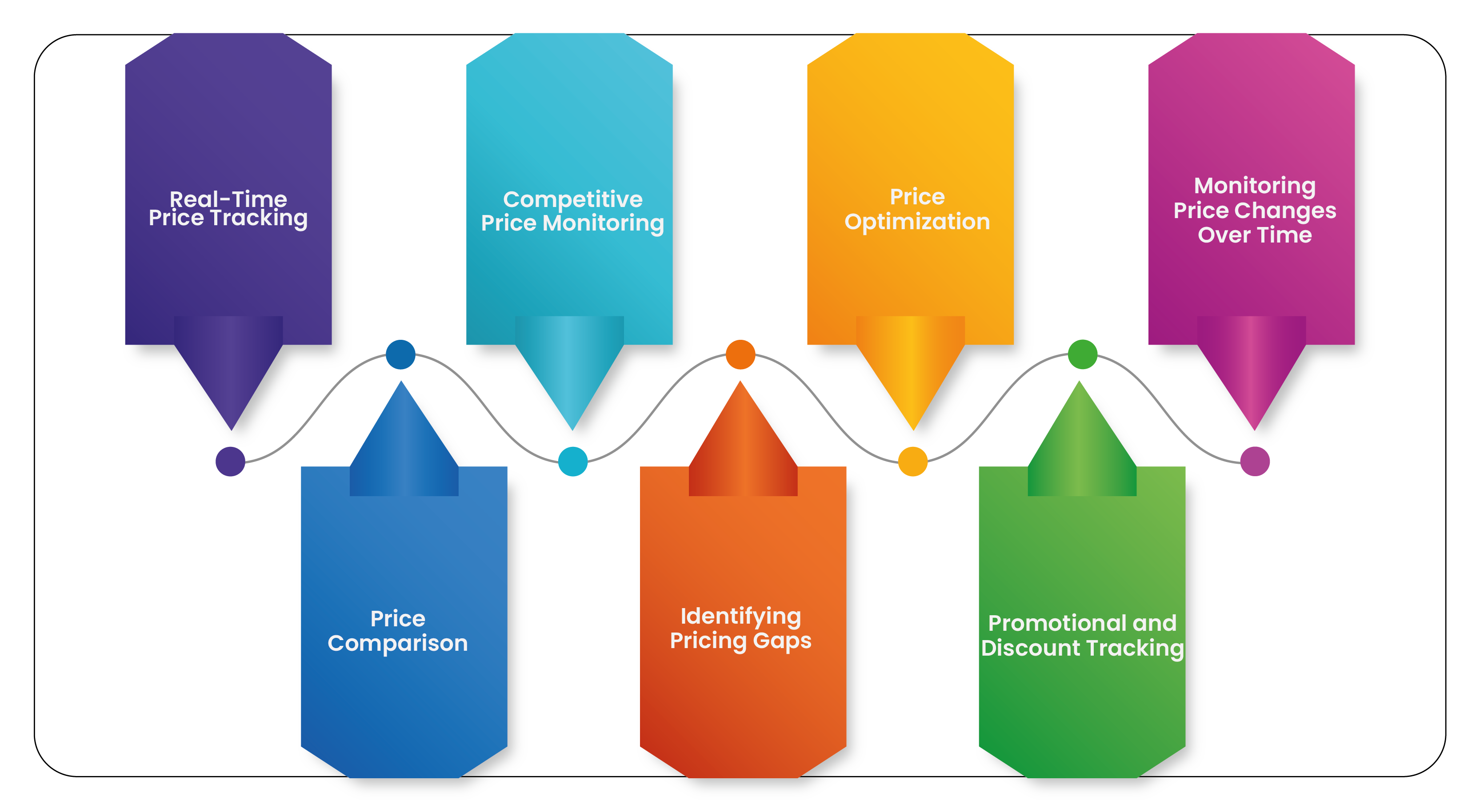
Web scraping offers significant benefits for pricing analysis in e-commerce. By enabling real-time price tracking, competitor monitoring, and price optimization, businesses can adjust their strategies, stay competitive, and maximize profitability, ensuring they effectively meet market demands and consumer expectations.
1. Real-Time Price Tracking: The e-commerce landscape is highly dynamic, with prices fluctuating frequently due to various factors such as demand, supply, promotions, or seasonal changes. E-commerce Data Scraper allows businesses to collect real-time pricing data from competitors' websites, ensuring they have the most up-to-date information. This enables companies to react swiftly to changes in competitor prices and adjust their pricing strategies accordingly.
2. Competitive Price Monitoring: Tracking competitors' pricing strategies is crucial for maintaining a competitive edge. By scraping data from multiple competitors, businesses can gain insights into how their pricing compares with the market. For example, a company might discover its products are priced higher than its competitors, signaling the need for price adjustments. Alternatively, businesses can identify opportunities to differentiate their products by offering better prices or unique promotions. E-commerce Data Extraction Services help businesses stay on top of competitor pricing changes.
3. Price Optimization: One of the key advantages of web scraping is its ability to support price optimization. With access to a wealth of pricing data, companies can use advanced algorithms and machine learning techniques to analyze trends and identify the optimal price point for their products. This helps businesses maximize their revenue and profitability while staying aligned with market demand and consumer expectations. Extract E-commerce Data from competitor sites for more accurate analysis for price optimization.
4. Monitoring Price Changes Over Time: Web scraping allows businesses to track historical price changes. This historical data can be valuable in understanding pricing patterns, such as seasonal price fluctuations or competitor reactions to market changes. By identifying trends, companies can better predict future pricing movements and adjust their strategies accordingly. E-commerce Product Datasets provide the data needed to track these patterns.
5. Price Comparison: Web scraping simplifies comparing prices across multiple platforms. Whether a company sells on its website, third-party marketplaces, or comparison websites, scraping allows businesses to compare prices for identical or similar products on various platforms. This comparison provides valuable insights into the competitive landscape and helps businesses position themselves strategically. Scraping E-commerce Websites helps streamline this price comparison process.
6. Identifying Pricing Gaps: Web scraping can help businesses identify pricing gaps in the market. For example, if a competitor consistently undercuts others on price, a business may match or exceed that pricing to gain a competitive advantage. On the other hand, if a competitor offers a similar product at a significantly higher price point, businesses can leverage this opportunity by offering a similar product at a lower price, attracting price-sensitive customers. Extracting E-commerce Website data allows businesses to spot these gaps efficiently.
7. Promotional and Discount Tracking: Tracking promotional offers, discounts, and flash sales is another crucial aspect of pricing analysis. Web scraping can help businesses monitor their competitors' promotional strategies, enabling them to create targeted campaigns and optimize their own discount strategies. Whether it's seasonal sales, bundle offers, or clearance pricing, web scraping provides a comprehensive view of how competitors use discounts to attract customers. E-commerce Product Data Scraping can help track these promotions effectively.
Challenges in Web Scraping for Pricing Analysis
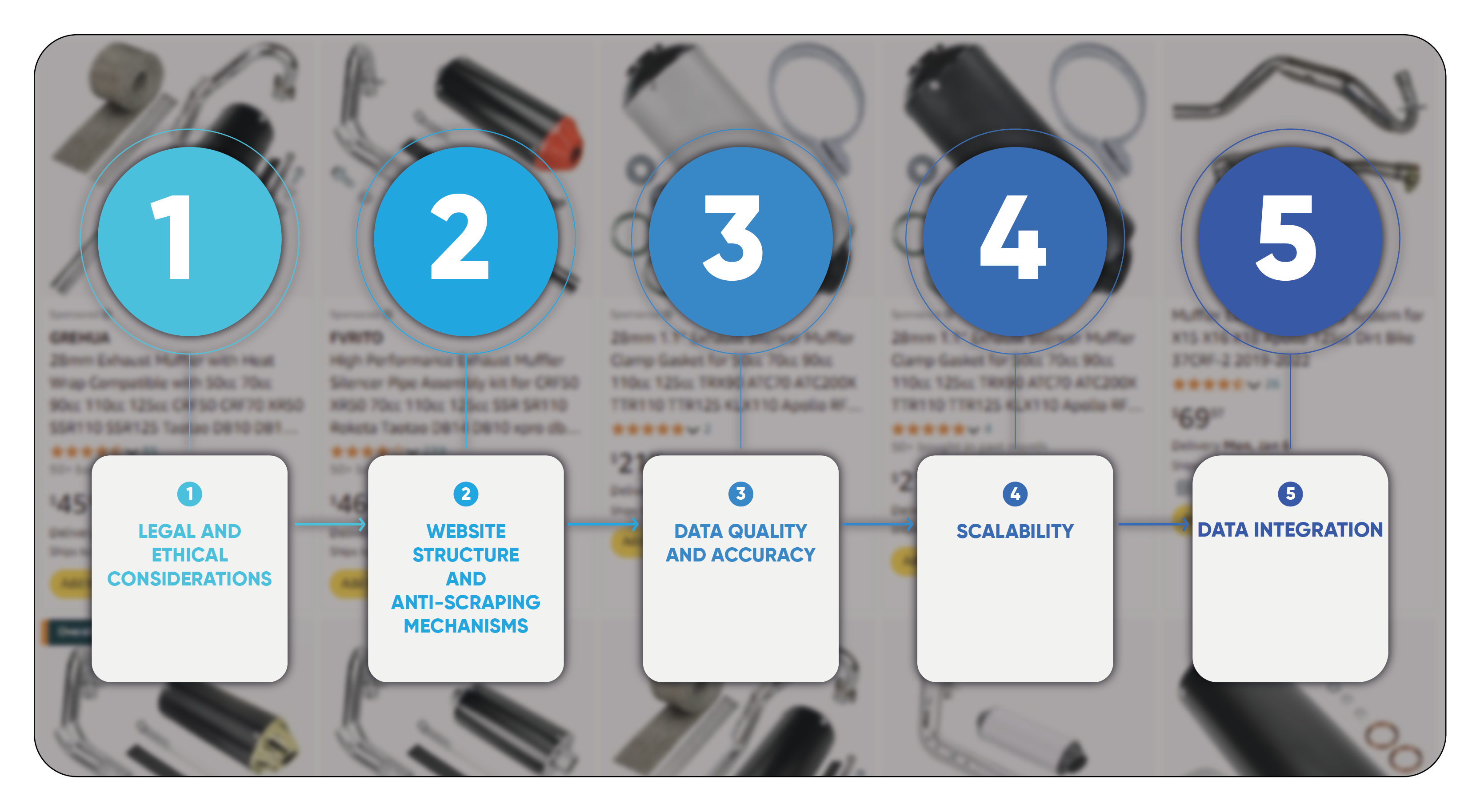
While web scraping offers numerous benefits for pricing analysis, it also presents specific challenges that businesses must address to ensure effective data collection and usage.
Legal and Ethical Considerations
Web scraping raises legal and ethical concerns, particularly regarding data ownership and intellectual property. Some websites explicitly prohibit scraping in their terms of service, which could result in legal action against the scraper. Businesses must comply with relevant laws and ethical standards when scraping competitor data. It's essential to carefully review the terms and conditions of the websites being scraped and avoid illegal activities, such as scraping personal data or violating copyright laws.
Website Structure and Anti-Scraping Mechanisms
Websites frequently update their structures, which can affect how data is scraped. In addition, many e-commerce websites implement anti-scraping mechanisms, such as CAPTCHA challenges, rate-limiting, or IP blocking, to prevent automated scraping. Overcoming these obstacles requires advanced scraping techniques and tools, which may require additional resources and expertise.
Data Quality and Accuracy
The quality and accuracy of the data collected through web scraping depend on the sources' reliability. Websites may contain inaccurate or inconsistent pricing data, and scraping errors may result in incomplete or incorrect information. To mitigate these issues, businesses need to implement robust data validation processes to ensure the accuracy of the collected data.
Scalability
As e-commerce businesses grow, the volume of data to be scraped increases. Managing large-scale scraping operations can become complex and resource-intensive. Companies need to invest in scalable scraping solutions and technologies that can handle high data volumes and ensure continuous competitor pricing monitoring.
Data Integration
Data collected from various sources through web scraping must be integrated into existing systems for practical analysis. This requires the use of data processing tools and platforms that can handle structured and unstructured data, ensuring that pricing data can be easily analyzed and acted upon in real-time.
Leveraging Web Scraping for Pricing Intelligence

Businesses should consider implementing a comprehensive pricing intelligence strategy to make the most of web scraping for pricing analysis. This involves integrating web scraping data into broader business analytics and decision-making processes. For example, companies can use the insights gained from competitor price monitoring to optimize their inventory, forecast demand, and develop personalized marketing campaigns. Furthermore, web scraping can be combined with machine learning algorithms to predict price changes and automate pricing decisions, allowing businesses to stay agile and competitive.
Conclusion
Web scraping has become a crucial tool for e-commerce businesses looking to stay competitive in a fast-paced market. Web scraping provides valuable insights that can drive profitability and market success by enabling businesses to track competitor pricing, monitor market trends, and optimize their pricing strategies. However, businesses must address legal considerations, anti-scraping mechanisms, and data quality issues to ensure effective implementation. With the right tools and strategies, e-commerce companies can harness the power of web scraping to stay ahead of the competition and deliver value to their customers.
At Product Data Scrape, we strongly emphasize ethical practices across all our services, including Competitor Price Monitoring and Mobile App Data Scraping. Our commitment to transparency and integrity is at the heart of everything we do. With a global presence and a focus on personalized solutions, we aim to exceed client expectations and drive success in data analytics. Our dedication to ethical principles ensures that our operations are both responsible and effective.





































.webp)






